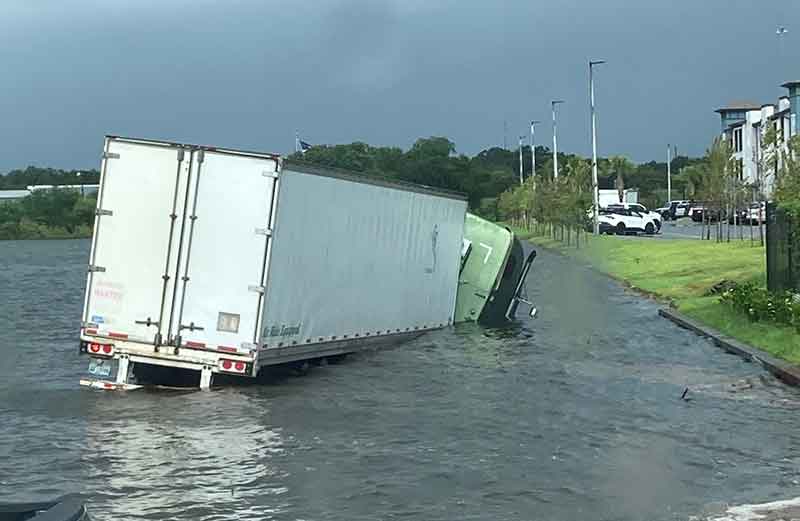Hurricane Debby, which made landfall on Florida’s Big Bend coast, has caused substantial disruptions to shipping operations along the East Coast. With the storm downgraded to a tropical storm but still packing a punch, its effects on port operations and shipping routes are significant.
Affected Shipping Routes and Ports
1. Major Port Closures
- Jacksonville Port Authority: The port, a key hub for container shipping, has closed to incoming vessels. This closure affects major shipping lanes connecting Jacksonville with international ports in Europe and Asia, causing delays for shipments headed to and from these regions.
- Port Tampa Bay: As Florida’s largest port by cargo volume, Port Tampa Bay’s closure impacts shipping routes between Tampa and destinations such as Houston, New York, and international ports in the Caribbean and Central America. The port’s non-vessel operations are ongoing, but the closure of waterways is causing delays.
- Georgia Ports: Ports such as Savannah and Brunswick have halted operations. The closure affects vital shipping routes along the Eastern Seaboard, including those connecting the Southeast U.S. with major North American and European ports.
- Port of Fernandina: While still open, this small port on Florida’s Atlantic Coast is on high alert. The port’s operations, handling steel, aluminum, and consumer goods, are disrupted as ships over 500 gross tons are advised to seek permission from the Coast Guard to remain.

2. Specific Shipping Routes Impacted
- Florida to New York: Shipping routes between Florida and the Northeastern U.S., including New York, are experiencing delays. The closure of major Florida ports affects cargo movement along this critical corridor.
- Savannah to Charleston: The ports of Savannah and Charleston, two major East Coast hubs, are both closed. It impacts shipping lanes connecting these ports with international destinations, including those in Europe and South America.
- Jacksonville to Europe and Asia: Jacksonville’s port closure impacts shipments between Florida and major European and Asian ports. This disruption is likely to cause delays in cargo delivery across the Atlantic and Pacific Oceans.
- Tampa to the Caribbean and Central America: Tampa’s closure affects shipping routes to the Caribbean and Central America, leading to delays in goods transit to these regions.
Broader Transportation Disruptions
1. Trucking and Road Traffic
- Trucking Delays: The storm has caused significant disruptions in road transportation, highlighted by a fatal truck accident in Florida. It has affected delivery schedules and logistics along major highways, including I-10 and I-75, which are critical for moving goods through the Southeast.
2. Flight Cancellations
- Nationwide Impact: Over 20,000 flights were delayed, and around 2,000 were canceled nationwide. This disruption affects air cargo services and passenger travel, impacting logistics and supply chains across the U.S.
Preparing for Continued Impact
As Hurricane Debby continues to move up the East Coast, areas including the Southeast, Mid-Atlantic, and New England are likely to experience further disruptions.
We at ASLG are actively addressing the challenges posed by Hurricane Debby through strategic rerouting, enhanced communication, and coordination with partners. By implementing these measures, we aim to minimize disruptions and ensure that our clients’ shipping needs are met efficiently and effectively.




